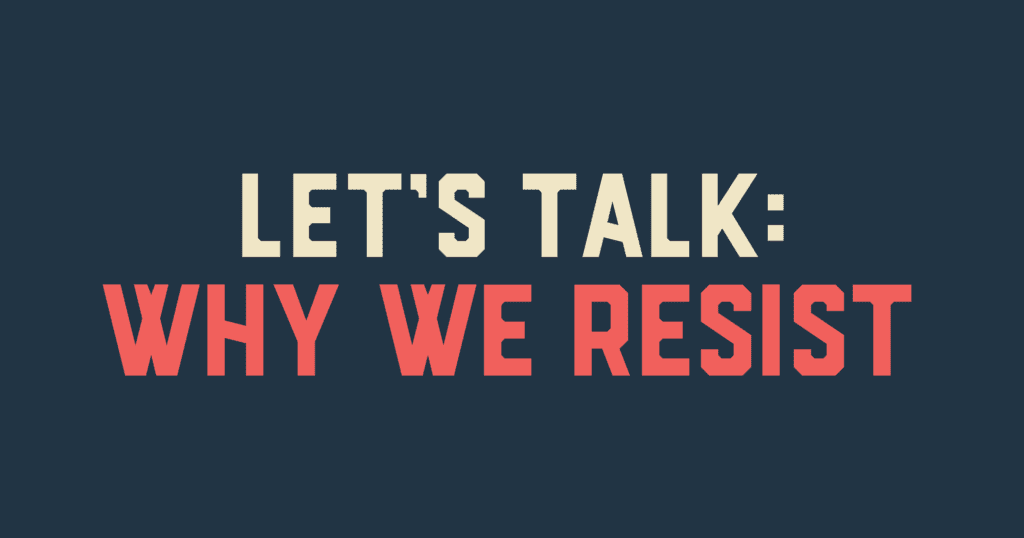Today, we are sharing action item #8 from the Women’s March 10 actions/100 days campaign.
Let’s Talk: Why We Resist
On January 21st, millions demonstrated that people from vastly different backgrounds can unite behind shared values across a spectrum of issues. From D.C. to Des Moines, from Paris to Lima, we marched for immigrant rights and LGBTQIA+ rights, for civil rights and environmental justice, for reproductive freedom and for Black lives, for people with disabilities and for economic justice, for Indigenous rights and sex workers’ rights – and we proved that all these issues are women’s issues. We proved that our liberation is bound to one another. We are not truly free, until the most marginalized among us are free. This means that we need to continue to learn and inform ourselves about the issues – especially the ones that may not affect our own lives.
While the principles we stand for are universal, their impact manifests at the local level. So as we continue to mobilize for true human rights for all people, engage with those around you and learn more about the specific issues that matter most to your community.
For Action 8 in our 10 Actions / 100 Days campaign, we encourage you to connect with people beyond your familiar circle and invite them to share their thoughts, hopes, fears and ideas. Break down barriers by coming out from behind your feeds and filters to engage your neighbors one-on-one and learn about what issues galvanize them. Be sure to share what you activate for too. Together, let’s talk about the issues that motivated us to march on January 21, and around which we can unite far beyond these initial 100 days.
ACTIONS YOU CAN TAKE
- Learn how to engage in effective one-on-one conversations with people on the important topics and issues.
- Host a group one-on-one training in your home (or another community space), where you and your friends, families, and colleagues, can practice guiding productive and open conversations about the issues.
- Get out of your comfort zone and engage 5 new members of your community to find out what matters to them.
- Tell us what you’ve learned! Let us know which issues are important to you and your community.
- Download and print these graphics. Fill in the blanks with the issues that matter to you and your communities. Share your responses on social media using the hashtag #WhyWeResist.
RESOURCES
Resources for One-On-One Meetings (1:1)
- Women’s March One-on-One Meeting (1:1) Field Guide that introduces 1:1s, goes over a sample agenda, and provides guiding questions for your 1:1 conversations
- Organizing for America (OFA) Organizing Manual includes tactics and tips for effective community organizing
- Better Conversations: a Starter Guide seeks to create new spaces for listening, conversation, and engagement at a time when we are more divided than ever before
- TED Talk from Robb Willer on how to have better political conversations
Additional resources to use throughout this action
- The latest session from our friends at Resistance School on how to structure and build capacity for action provides guidance for structuring and building your leadership team as you bring new members into the fold and includes a worksheet and guided video on launching your leadership team.
- Digital Activism 101 is a guide to showing up, speaking out, and connecting on Twitter and Facebook without undermining yourself or your cause
- Social Justice communications toolkit from Racial Equality Tools and The Opportunity Agenda
- How to talk to your loved ones about a Donald Trump presidency
- Talking to Our People: Showing Up for Racial Justice (SURJ) guide for talking to white people in the moment of Trump
- Talk Trump Out: Using Values to Reach Trump Supporters
- #TalkAboutTrayvon: a toolkit for white people on the fifth anniversary of Trayvon’s Death
* Please note: Many of these resources were collected by our friends at The Resistance Manual – another amazing overarching resource for activists and organizers.
Issue Guides
- The Resistance Manual is an open-source platform to harness the collective power of the people to resist the impact of a Trump presidency and to continue to make progress in our communities
- Toolkits from Beyond the Moment, a coalition of more than 50 organizations committed to the multi-racial, cross-movement fight for justice, freedom and the right to live fully, with dignity and respect
